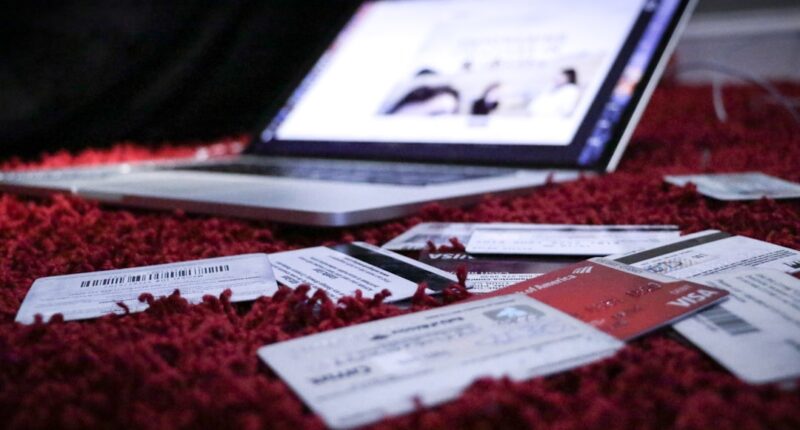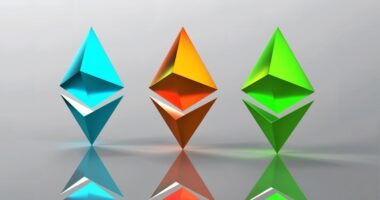Non-fungible tokens (NFTs) are unique digital assets that represent ownership or authenticity of specific items or content, such as artwork, videos, music, or tweets. Unlike fungible cryptocurrencies like Bitcoin or Ethereum, NFTs cannot be exchanged on a one-to-one basis due to their unique nature. NFTs utilize blockchain technology to ensure security and immutability.
Each NFT contains metadata providing information about the asset’s provenance, ownership, and other relevant details, stored on a decentralized ledger. This makes the information tamper-proof and transparent. Purchasing an NFT involves buying a digital certificate of ownership recorded on the blockchain, which can be transferred or sold to other parties, creating a verifiable ownership record.
In recent years, NFTs have gained popularity in the art world, allowing digital artists and creators to sell their work directly to collectors. The gaming industry has also adopted NFTs to represent in-game items and assets. As the technology evolves, the potential applications for NFTs are expected to expand, leading to more innovative uses in various sectors.
Key Takeaways
- NFTs are unique digital assets that represent ownership of a specific item or piece of content on the blockchain.
- Top marketplaces and platforms for buying NFTs include OpenSea, Rarible, and Foundation, offering a wide range of digital collectibles.
- Using Ethereum to purchase NFTs involves setting up a digital wallet, acquiring ETH, and connecting to an NFT marketplace.
- When using Bitcoin to purchase NFTs, consider using a platform that supports BTC payments and be mindful of transaction fees and processing times.
- Staying informed about the latest NFT news and trends is crucial for understanding market dynamics and making informed investment decisions.
Where to Buy NFTs: Exploring the Top Marketplaces and Platforms
Popular NFT Marketplaces
As the demand for NFTs continues to grow, several marketplaces and platforms have emerged as popular destinations for buying and selling digital collectibles. One of the most well-known NFT marketplaces is OpenSea, which offers a wide range of digital assets, including art, domain names, virtual worlds, and more. OpenSea provides a user-friendly interface that allows buyers to browse through various categories and collections, making it easy to discover new and exciting NFTs.
Creator-Centric Platforms
Another popular platform for buying and selling NFTs is Rarible, which allows creators to mint their own digital assets and list them for sale. Rarible also features a governance token (RARI) that allows holders to participate in platform governance and decision-making processes. For those interested in investing in NFTs from well-known artists and creators, platforms like Foundation and SuperRare offer a curated selection of high-quality digital art pieces.
Mainstream Platforms Join the NFT Space
In addition to these dedicated NFT marketplaces, some mainstream platforms have also started to support NFT transactions. For example, NBA Top Shot has gained significant traction by offering basketball-themed NFT collectibles featuring iconic moments from NBA games. With so many options available, buyers have a wide variety of marketplaces and platforms to choose from when looking to add NFTs to their digital collections.
Using Ethereum (ETH) to Purchase NFTs: A Step-by-Step Guide

Ethereum (ETH) is the most widely used blockchain for creating and trading NFTs, so it’s no surprise that many NFT transactions are conducted using this cryptocurrency. To purchase an NFT using Ethereum, you’ll first need to set up a digital wallet that supports ETH and other ERC-20 tokens. Popular options for Ethereum wallets include MetaMask, MyEtherWallet, and Trust Wallet.
Once you have a compatible wallet set up, you’ll need to acquire some ETH to use for purchasing NFTs. This can be done by purchasing ETH from a cryptocurrency exchange or by exchanging other cryptocurrencies for ETH. With ETH in your wallet, you can then browse NFT marketplaces like OpenSea or Rarible to find a digital collectible that catches your eye.
When you find an NFT you’d like to purchase, simply follow the platform’s instructions for completing the transaction using your Ethereum wallet. After completing the purchase, the NFT will be transferred to your Ethereum address, and the transaction will be recorded on the Ethereum blockchain. It’s important to note that each transaction on the Ethereum network incurs a gas fee, which is paid in ETH.
Gas fees can fluctuate based on network congestion and other factors, so it’s essential to consider these fees when buying and selling NFTs on the Ethereum blockchain.
Using Bitcoin (BTC) to Purchase NFTs: Tips and Tricks for Buying Digital Collectibles
| Tip or Trick | Description |
|---|---|
| Choose a Reputable NFT Marketplace | Research and select a trusted platform for buying NFTs with Bitcoin. |
| Understand Gas Fees | Be aware of the transaction fees associated with using Bitcoin for NFT purchases. |
| Secure Your Wallet | Use a secure wallet to store your Bitcoin for NFT transactions. |
| Verify NFT Authenticity | Ensure the authenticity and ownership of the NFT before making a purchase. |
| Stay Informed About Regulations | Keep up to date with the legal and regulatory aspects of using Bitcoin for NFTs. |
While Ethereum is the dominant blockchain for NFT transactions, some marketplaces and platforms also support Bitcoin (BTC) as a payment method for purchasing digital collectibles. To use Bitcoin for buying NFTs, you’ll need to find a marketplace or platform that accepts BTC payments for NFT transactions. Once you’ve identified a suitable platform, you’ll need to ensure that your Bitcoin wallet is compatible with the platform’s payment system.
When using Bitcoin to purchase NFTs, it’s important to be mindful of transaction fees and processing times. Bitcoin transactions can sometimes take longer to confirm compared to Ethereum transactions, so it’s essential to factor in potential delays when buying or selling NFTs using BTAdditionally, Bitcoin transaction fees can vary based on network congestion and other factors, so it’s crucial to consider these fees when budgeting for NFT purchases. Some platforms may offer the option to convert Bitcoin into stablecoins or other cryptocurrencies that are more commonly used for NFT transactions.
This can provide added flexibility for buyers who prefer using Bitcoin as their primary cryptocurrency but want to take advantage of the broader range of NFTs available on Ethereum-based marketplaces.
Keeping Up with the Latest NFT News: Staying Informed About the Market and Trends
The NFT market is constantly evolving, with new trends, developments, and opportunities emerging on a regular basis. Staying informed about the latest news and updates in the world of NFTs is essential for anyone looking to participate in this rapidly growing space. One way to stay up-to-date with NFT news is by following reputable cryptocurrency and blockchain news outlets that regularly cover developments in the NFT market.
Social media platforms like Twitter and Discord are also valuable sources of information for staying informed about NFT trends and market dynamics. Many prominent figures in the NFT space regularly share insights and updates on these platforms, making them excellent resources for staying connected with the community and learning about new opportunities. In addition to following news outlets and engaging with the community on social media, attending virtual events and conferences focused on NFTs can provide valuable insights into the latest trends and developments in the market.
These events often feature panel discussions, keynote presentations, and networking opportunities that can help participants gain a deeper understanding of the evolving landscape of digital collectibles.
Securing Your First NFT: Best Practices for Safely Storing and Managing Your Digital Collectibles

Understanding the Risks
Once you’ve acquired your first NFT, it’s crucial to prioritize security when storing and managing your digital collectible. Since NFTs are stored on the blockchain, they are inherently secure from tampering or counterfeiting. However, it’s essential to take precautions to protect the private keys associated with your digital wallet, as these keys are used to access and transfer your NFTs.
Safeguarding Your Private Keys
Using a hardware wallet or a secure software wallet with robust security features can help safeguard your private keys from unauthorized access or theft. It’s also important to regularly update your wallet software and use strong authentication methods, such as two-factor authentication (2FA), to add an extra layer of protection to your account.
Keeping Records and Backups
In addition to securing your digital wallet, it’s advisable to keep records of your NFT transactions and ownership details in a secure location. This can include keeping backups of your private keys and transaction records in encrypted storage or using a password manager to store sensitive information securely.
NFT Investment Strategies: How to Make Informed Decisions When Buying and Selling NFTs
As interest in NFTs continues to grow, many individuals are exploring opportunities to invest in digital collectibles as part of their investment portfolio. When considering NFT investment strategies, it’s essential to conduct thorough research into the specific assets or collections you’re interested in acquiring. This can involve analyzing historical sales data, evaluating the reputation of creators or artists, and assessing market trends and demand for similar types of NFTs.
Diversification is another key principle to consider when developing an NFT investment strategy. By diversifying your portfolio with a mix of different types of digital collectibles across various categories or themes, you can reduce risk exposure and potentially capture value from different segments of the market. It’s also important to stay informed about regulatory developments and legal considerations related to NFT investments.
As the regulatory landscape for digital assets continues to evolve, staying compliant with relevant laws and regulations is crucial for protecting your investments and ensuring a smooth experience when buying and selling NFTs. In conclusion, understanding how NFTs work and where to buy them is essential for anyone looking to participate in this exciting new market. Whether using Ethereum or Bitcoin for purchasing NFTs, staying informed about market trends and best practices for securing digital collectibles is crucial for making informed investment decisions.
By following these guidelines and staying engaged with the community, individuals can navigate the world of NFTs with confidence and make strategic decisions when buying and selling digital collectibles.
FAQs
What is an NFT?
An NFT, or non-fungible token, is a digital asset that represents ownership or proof of authenticity of a unique item or piece of content, such as artwork, music, videos, or collectibles, using blockchain technology.
Where can I buy NFTs?
You can buy NFTs on various online platforms called NFT marketplaces, such as OpenSea, Rarible, Foundation, and NBA Top Shot. These platforms allow users to buy, sell, and trade NFTs using cryptocurrency.
How do I buy NFTs?
To buy NFTs, you will need to create an account on an NFT marketplace, connect a digital wallet that holds cryptocurrency, browse the available NFTs, and make a purchase using cryptocurrency.
What cryptocurrency do I need to buy NFTs?
Most NFT marketplaces accept Ethereum (ETH) as the primary cryptocurrency for purchasing NFTs. Some marketplaces may also accept other cryptocurrencies such as Bitcoin (BTC) or stablecoins like USDC or DAI.
Are there any risks involved in buying NFTs?
Yes, there are risks involved in buying NFTs, such as market volatility, potential scams, and the possibility of purchasing counterfeit or stolen NFTs. It’s important to do thorough research and exercise caution when buying NFTs.
Can I sell my NFT after purchasing it?
Yes, you can sell your NFT after purchasing it on the same NFT marketplace where you bought it or on other compatible marketplaces. Selling NFTs follows a similar process to buying them, involving listing the NFT for sale and completing a transaction using cryptocurrency.





